SUMMARY
This is AI generated summarization, which may have errors. For context, always refer to the full article.
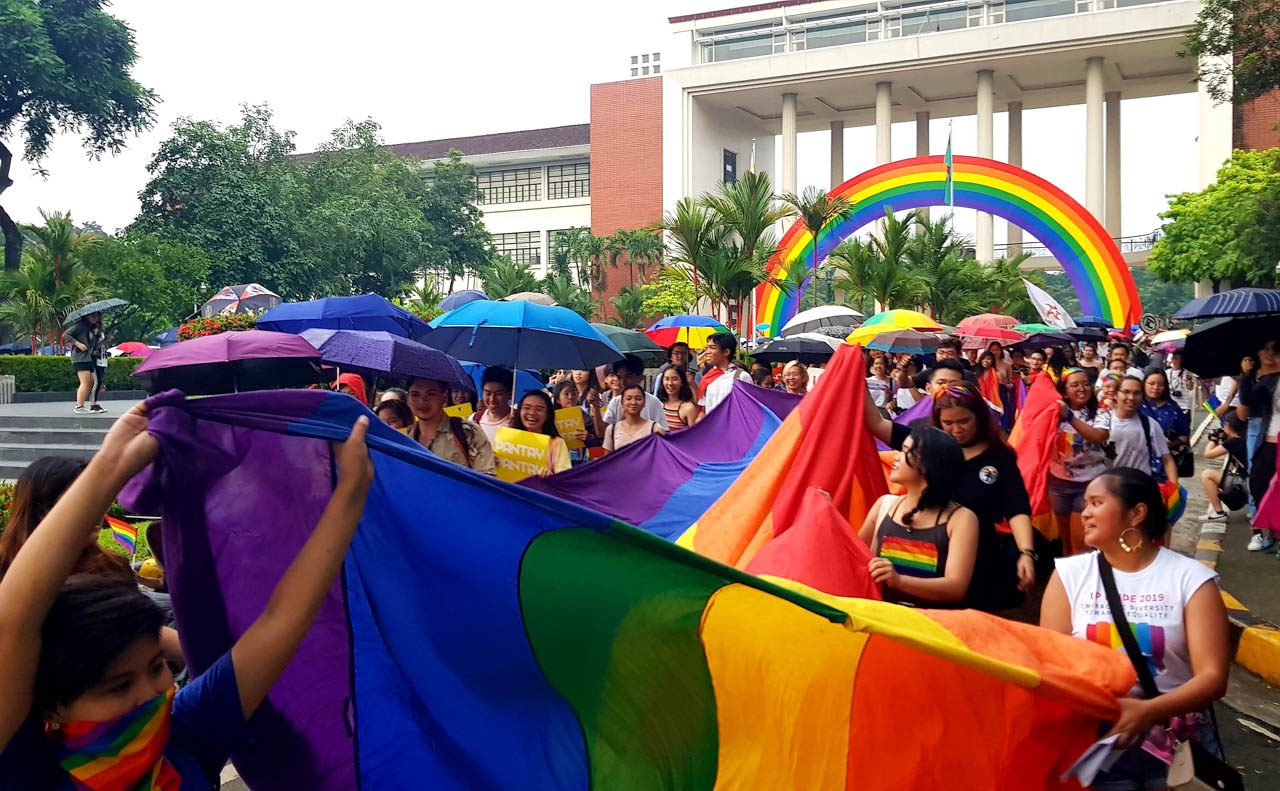
MANILA, Philippines – A magnitude 5.3 earthquake didn’t shake the resolve of hundreds of people who turned up on Friday, September 13, for this year’s University of the Philippines (UP) Pride March at the Academic Oval in UP Diliman.
Students and faculty members stood in solidarity with the LGBTQ+ community during the UP Pride March, the main event of the three-day UP Pride 2019 celebration, as they called for equality within and beyond the campus.
Anchored on the theme “Embracing Diversity Towards Equality,” this year’s UP Pride is especially focused on pushing forward the formulation and adoption of a university system-wide policy on equality and non-discrimination on the basis of sexual orientation, gender identity and expression, and sex characteristics (SOGIESC).
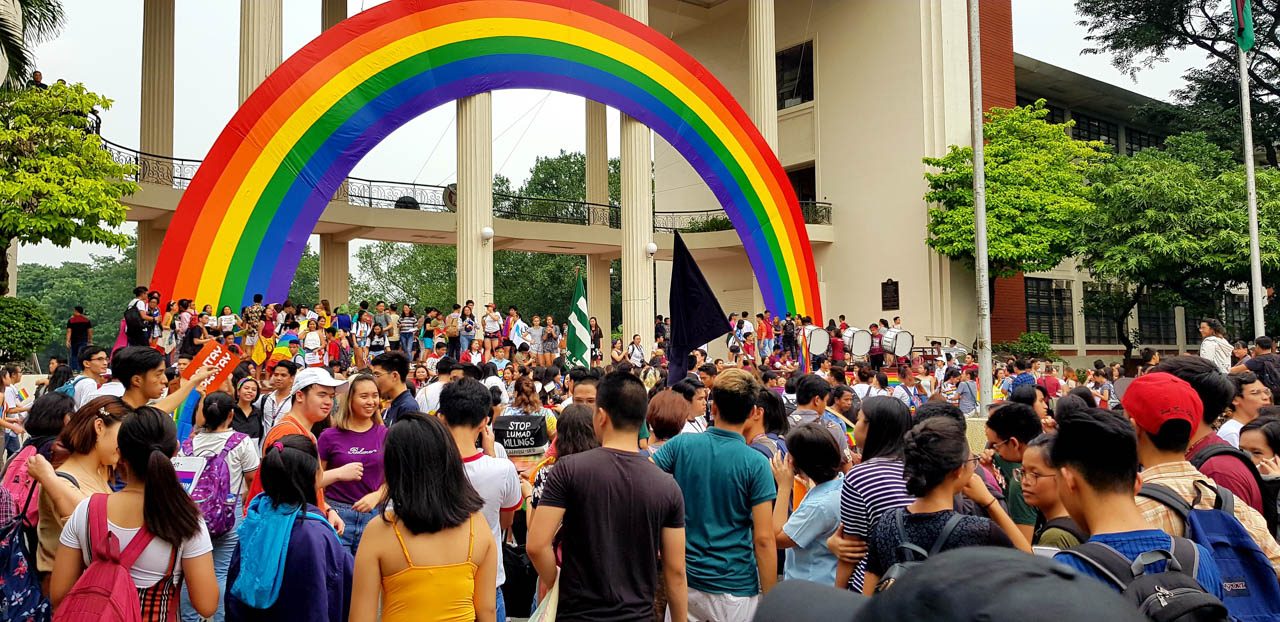
Since 2008, UP Pride has elevated the voices and concerns of LGBTQ+ persons within and beyond the university, and has become an official UP Diliman event since 2016.
“The goal of UP Pride is to be a safe place where people can celebrate who they are. But at the same time, it’s also a platform for the LGBTQ+ community to spread awareness on issues that affect us most, such as the urgency to have a national anti-discrimination law and a university anti-discrimination policy,” said UP Pride 2019 co-head Isabela Rivera.
From September 10 to 13, various activities were done to reinforce the call #UPTowardsEquality and #SOGIEEqualityNow in time for Friday’s Pride March.
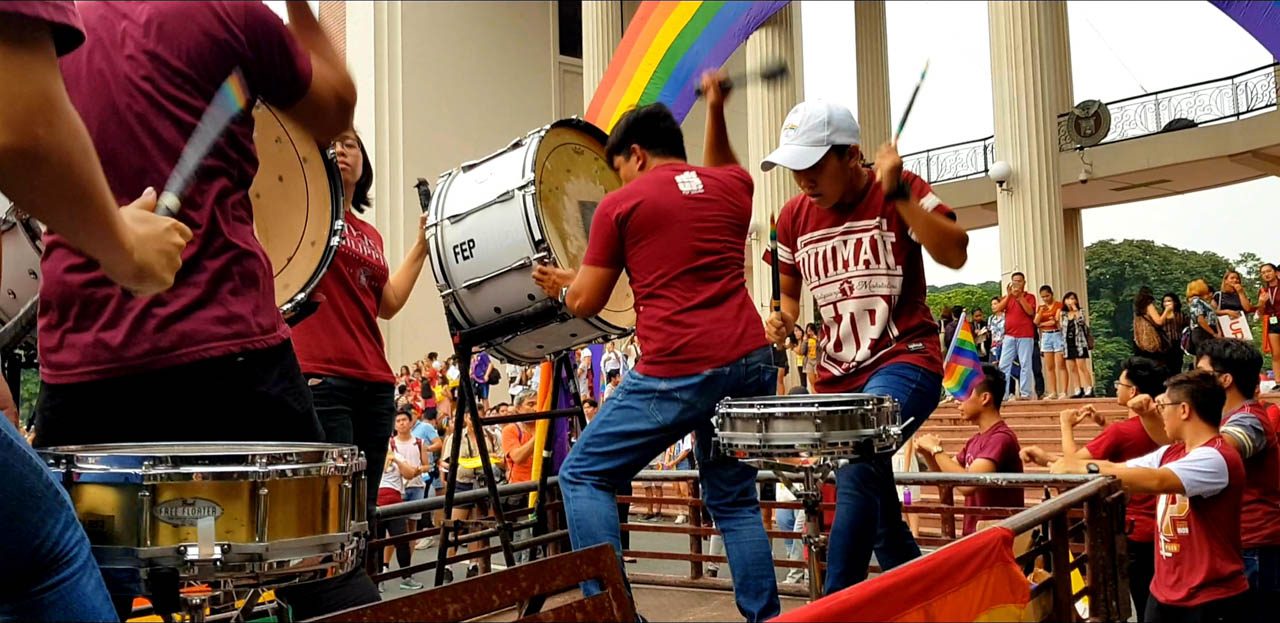
Among these were the launching of an exhibit about the everyday challenges of LGBTQ+ students, a SOGIESC workshop to promote gender sensitivity among university stakeholders, and a forum discussing the elements and framework behind the proposed SOGIE policy in UP.
Starting in their own backyard
While there remains no national legislation recognizing and protecting the rights of LGBTQ+ persons, the UP Center for Women’s and Gender Studies (UP CWGS) believes that a localized SOGIE policy is a necessary step towards equality.
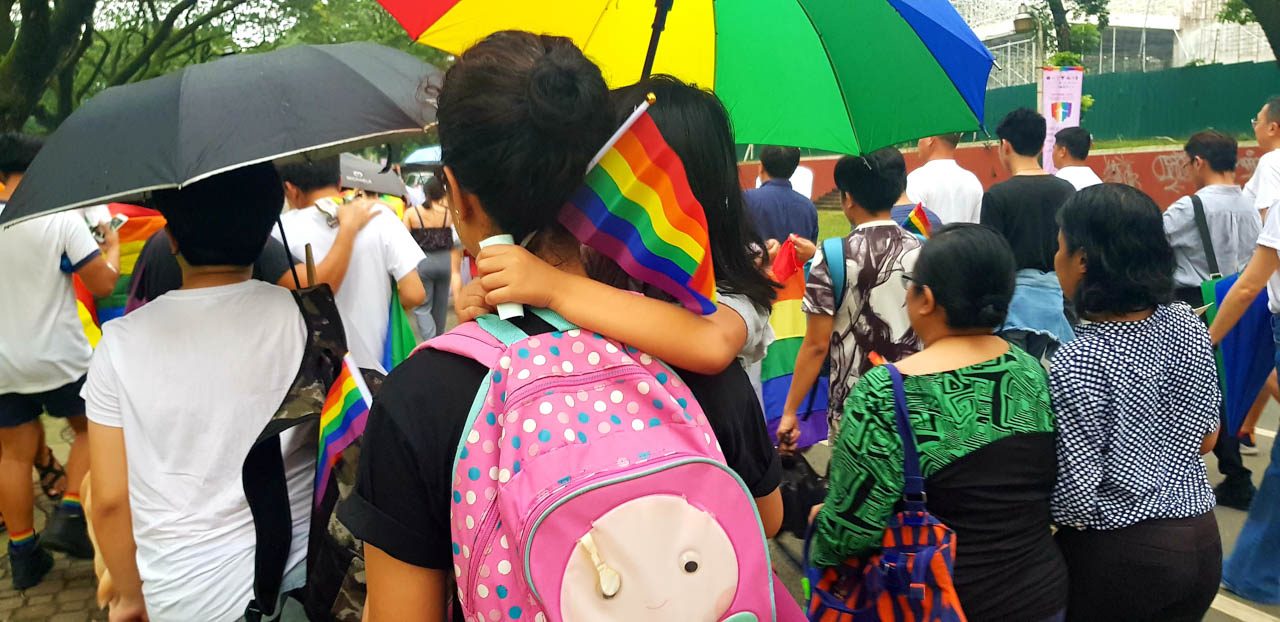
“For UP to realize its vision for academic and operational excellence, it should ratify a policy which spells out and ensures that everyone within its purview enjoys the same rights and privileges,” said Dr. Marby Villaceran, the Deputy Director for Research and Publication of UP CWGS
To date, UP CWGS, together with members of UP Babaylan and its alumni counterpart Babaylanes, Inc., have already drafted the UP SOGIESC policy. Villaceran said UP CWGS is now working with the different UP gender offices to roll out consultation sessions with stakeholders throughout the university, including faculty members and lawyers.
Expanding on the previous SOGIE framework, ‘SOGIESC’ further appreciates the diversity of people through the recognition of an individual’s sex characteristics, which includes genitals, gonads, and chromosome patterns. The expansion helps to meet challenges faced by intersex persons, who are born with sex characteristics that do not fit typical binary notions of male or female bodies. (WATCH: What you need to know about SOGIE)
Among the many provisions of the UP SOGIESC policy are the allocation of funds for medical services including those that focus on sexual health, and the creation of permanent positions for psychological therapists providing SOGIESC-responsive counselling services.
“It should also provide for the construction or designation of SOGIESC-inclusive and/or gender-neutral toilets, and the issuance of gender identity-affirmative documents,” added Villaceran.
A brighter rainbow ahead
Passage of the UP SOGIESC policy would be a welcome development to LGBTQ+ persons such as UP trans woman professor Hermie Monterde, who just this year came forward on social media with accounts of alleged workplace discrimination.
Monterde recounted her distress over the alleged discrimination towards her, and how she believes that her SOGIE has had a negative effect on her tenureship application.
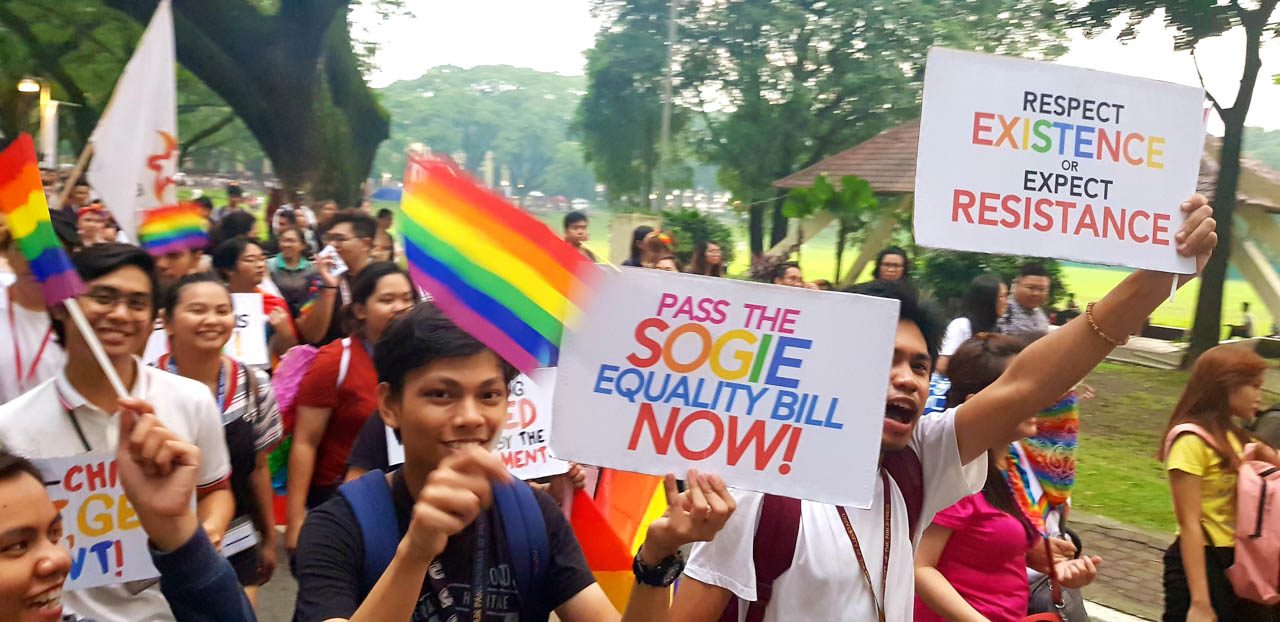
Through the concluded three-day celebration, UP Pride 2019 organizers like Rivera hope that people have learned more about SOGIESC-based discrimination, and that they would join the fight to end it.
“SOGIESC-based discrimination impacts the overall quality of life of LGBTQI [lesbian, gay, bisexual, transgender, queer, and intersexpeople],” said Rivera. “We hope that UP Pride has inspired the LGBTQI community as well as our allies to join the fight for LGBTQI rights and gender equality and to advocate for the proposed UP SOGIESC Policy as well as the passage of the SOGIE Equality Bill.” – Rappler.com
Jaia Yap is a Rappler intern with a bachelor’s degree in Business Administration from the University of the Philippines Diliman. He tweets at @jaiayap.
Add a comment
How does this make you feel?
There are no comments yet. Add your comment to start the conversation.